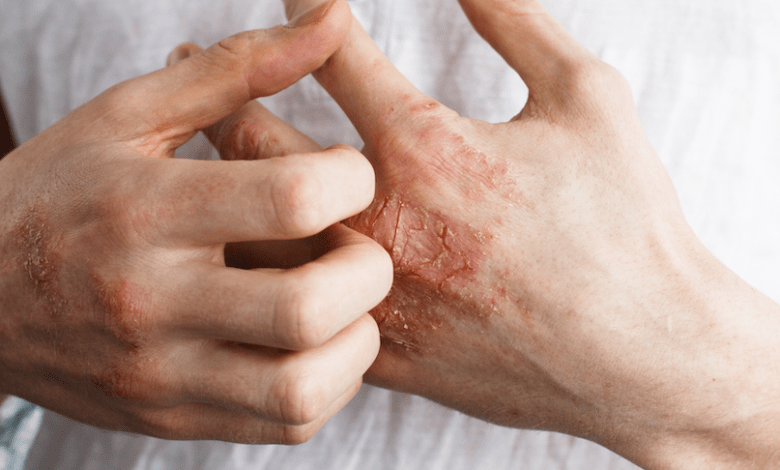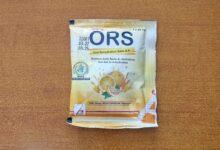
15 Causes of Eczema
15 Causes of Eczema – Eczema, also known as atopic dermatitis, is a chronic skin condition that affects millions of individuals worldwide. While it manifests through red, itchy, and inflamed skin, its root causes remain varied and complex. Understanding the underlying triggers is crucial for managing and preventing flare-ups effectively. In this article, we will explore 15 common causes of eczema, shedding light on each factor’s impact and providing insights into potential preventive measures. By unraveling the complexities of eczema, we aim to empower individuals to make informed choices and take proactive steps toward healthier skin.NYSC Portal
The 15 15 Causes of Eczema are:
1. Genetic Factors
Eczema often runs in families, suggesting a genetic predisposition to the condition. Research has identified specific genetic variations associated with eczema, particularly those involved in the skin’s barrier function and immune response. While we cannot modify our genes, understanding the genetic component helps individuals with a family history of eczema to be more vigilant in managing potential triggers and seeking appropriate treatments.Information guide Nigeria
👉 Relocate to Canada Today!
Live, Study and Work in Canada. No Payment is Required! Hurry Now click here to Apply >> Immigrate to CanadaRead Also: 15 Best Stadium in Africa
2. Immune System Dysfunction
Abnormal immune responses play a significant role in the development of eczema. People with eczema often have overactive immune systems, causing inflammation and triggering skin irritation. This immune system dysfunction may be influenced by factors such as allergens, stress, and certain medications. By addressing immune system imbalances through lifestyle modifications and targeted therapies, individuals can help minimize the occurrence and severity of eczema symptoms.Romantic love message
3. Allergens
Exposure to allergens is a common trigger for eczema flare-ups. Substances like pollen, dust mites, pet dander, and certain foods can stimulate an allergic reaction, leading to skin inflammation. Identifying and avoiding specific allergens is crucial in managing eczema. Allergy testing can be beneficial in determining an individual’s sensitivities, enabling them to create an environment that minimizes exposure to triggers.JAMB portal
Read Also: Top 15 Best General Hospital in Nigeria
4. Irritants
Certain substances can irritate the skin and exacerbate eczema symptoms. These irritants include harsh soaps, detergents, fragrances, and chemical-laden skincare products. By using gentle, hypoallergenic products and opting for natural alternatives, individuals can reduce the risk of skin irritation. Additionally, wearing soft, breathable fabrics and avoiding prolonged contact with irritants can help alleviate eczema-related discomfort.
5. Stress and Emotional Factors
Psychological stress and emotional factors have been linked to eczema flare-ups. Stress can weaken the immune system and increase inflammation, exacerbating symptoms. Moreover, the itching and appearance of eczema can negatively impact one’s self-esteem and mental well-being, creating a vicious cycle. Incorporating stress management techniques such as mindfulness, relaxation exercises, and seeking emotional support can contribute to better eczema control.
Read Also: 15 Best Condoms in Nigeria
6. Climate and Weather Conditions
Environmental factors, including climate and weather conditions, can influence eczema. Cold, dry air during winter months can lead to dry skin, while heat and humidity in the summer may trigger sweat-induced irritation. Protecting the skin from extreme temperatures, using humidifiers or moisturizers, and adapting skincare routines to seasonal changes can help individuals manage eczema more effectively.Good morning My Love Message
👉 Relocate to Canada Today!
Live, Study and Work in Canada. No Payment is Required! Hurry Now click here to Apply >> Immigrate to Canada7. Hormonal Changes
Fluctuations in hormone levels, such as during pregnancy or menstrual cycles, can impact eczema symptoms. Some women experience a worsening of symptoms during these hormonal shifts. Understanding the relationship between hormonal changes and eczema can guide individuals in adopting strategies to alleviate flare-ups during such periods. Consultation with healthcare professionals may provide additional treatment options tailored to hormonal influences.
8. Food Sensitivities
Certain foods can trigger eczema symptoms in susceptible individuals. Common culprits include dairy products, eggs, soy, wheat, and nuts. Identifying food sensitivities through an elimination diet or allergy testing can help individuals avoid triggering foods and manage their eczema more effectively. However, it’s important to note that food sensitivities vary from person to person, and consulting a healthcare professional or dietitian is advisable.
Read Also: 15 Cheapest Blender in Nigeria
9. Microbial Factors
Microbes, such as bacteria, viruses, and fungi, can influence eczema. The balance of microorganisms on the skin’s surface plays a crucial role in maintaining skin health. Disturbances in this balance can contribute to eczema flare-ups. Using appropriate skincare products, practicing good hygiene, and avoiding prolonged exposure to moist environments can help maintain a healthy microbial balance and minimize the risk of infection-related eczema symptoms.15 Causes of Eczema
10. Environmental Pollution
Exposure to environmental pollutants, such as air pollution and chemicals, has been associated with an increased risk of eczema. These pollutants can disrupt the skin barrier, trigger inflammation, and compromise skin health. Reducing exposure to environmental pollution by avoiding heavily polluted areas, using air purifiers, and adopting protective measures (e.g., wearing long sleeves and hats) can help mitigate the impact of these factors on eczema.
11. Medications
Certain medications, such as antibiotics and nonsteroidal anti-inflammatory drugs (NSAIDs), have been linked to eczema flare-ups in some individuals. If eczema symptoms coincide with the use of a particular medication, it is crucial to consult a healthcare professional for possible alternatives or adjustments. Identifying specific medication triggers can help prevent future outbreaks and ensure appropriate treatment options.
Read Also: 15 Best Army Polytechnics In Nigeria
12. Dry Skin
Individuals with eczema often have dry and sensitive skin, which compromises the skin barrier’s integrity and allows irritants and allergens to penetrate more easily. Maintaining proper skin hydration through regular use of moisturizers and avoiding excessive hot water exposure can improve the skin’s barrier function. Additionally, gentle exfoliation and avoiding harsh scrubbing can prevent further damage to the delicate skin.
13. Scratching and Rubbing
Persistent scratching and rubbing of itchy eczema patches can worsen inflammation and disrupt the skin barrier, leading to bacterial or fungal infections. Encouraging individuals with eczema to find alternative ways to relieve itching, such as applying cold compresses or using over-the-counter anti-itch creams, can help minimize the harmful effects of scratching and rubbing.
14. Occupational Factors
Certain occupations, such as those involving frequent exposure to irritants, chemicals, or wet environments, can increase the risk of developing occupational dermatitis, including eczema. Using protective equipment, such as gloves and specialized clothing, practicing proper hand hygiene, and minimizing direct contact with irritants can help prevent or reduce the impact of occupational-related eczema.
15. Skin Barrier Defects
Individuals with eczema often have compromised skin barriers, allowing moisture loss and increased susceptibility to irritants and allergens. Factors such as genetic predisposition, improper skincare routines, and environmental influences can contribute to these defects. Emphasizing a comprehensive skincare routine that includes regular moisturization, gentle cleansing, and appropriate barrier repair products can help strengthen the skin’s protective barrier and reduce eczema symptoms.
Conclusion
Eczema is a multifaceted condition influenced by various causes, ranging from genetic predisposition to environmental triggers. By understanding the underlying factors contributing to eczema, individuals can take proactive steps to manage and prevent flare-ups effectively. Identifying and avoiding specific triggers, adopting healthy lifestyle habits, and seeking appropriate medical guidance can significantly improve the quality of life for those living with eczema. Through a holistic approach that addresses the root causes and focuses on maintaining skin health, individuals can find relief, reduce symptoms, and gain greater control over their eczema.
Check: JAMB Result
Check and Confirm: How much is Dollar to Naira today







